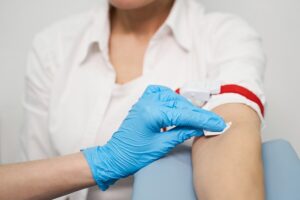Human papillomavirus (HPV) is one of the most common sexually transmitted infections (STIs) worldwide. With its link to various cancers, including cervical cancer, understanding and utilizing HPV testing is crucial for early detection and prevention. This article provides an in-depth guide to STI testing for HPV, including its importance, testing methods, benefits, and frequently asked questions.

What is HPV?
Overview of Human Papillomavirus
HPV is a group of more than 200 related viruses. Some types cause warts, while others can lead to cancers such as cervical, anal, throat, and penile cancer.
Transmission
HPV is transmitted through intimate skin-to-skin contact, most commonly during vaginal, anal, or oral sex. It can also be transmitted even when an infected person shows no symptoms.
Types of HPV
- Low-Risk HPV: These types cause warts but are not associated with cancer.
- High-Risk HPV: These types can cause cellular changes leading to cancer over time.
Importance of STI Testing for HPV
Early Detection and Prevention
- Cancer Prevention: Detecting high-risk HPV types early can prevent cervical and other cancers through timely intervention.
- Managing Health Risks: Identifying HPV infections allows for appropriate monitoring and care.
Protecting Partners
Regular HPV testing helps prevent the transmission of the virus to sexual partners.
Public Health Benefits
Widespread HPV testing reduces the prevalence of the virus, ultimately lowering the incidence of related cancers and conditions.
How is HPV Diagnosed?

Types of HPV Tests
HPV DNA Test
- Description: Detects the DNA of high-risk HPV types in cervical cells.
- Usage: Often performed alongside a Pap smear.
Pap Smear (Pap Test)
- Description: Examines cervical cells for abnormalities caused by HPV.
- Significance: Helps identify precancerous or cancerous changes.
Co-Testing
- Description: Combines an HPV DNA test and a Pap smear for comprehensive screening.
- Benefits: Increases detection accuracy for cervical cancer risks.
Who Should Get Tested?
- Women Aged 21-65: Regular Pap smears are recommended starting at age 21. HPV testing begins at age 30 or earlier in some cases.
- Men: While no routine HPV test exists for men, genital warts or symptoms should prompt medical consultation.
Testing Locations
- Healthcare Clinics: Gynecologists and primary care providers offer HPV testing.
- Community Health Centers: Provide affordable or free testing options.
Treatment Options for HPV
Managing Low-Risk HPV
- Wart Removal: Treatments include cryotherapy, topical medications, or surgical removal.
- Monitoring: Most low-risk HPV infections clear on their own.
Addressing High-Risk HPV
- Cervical Dysplasia Treatment: Procedures like LEEP or cryotherapy may remove abnormal cells.
- Vaccination: The HPV vaccine protects against the most common high-risk and low-risk HPV types.
Benefits of Regular HPV Testing
- Cancer Prevention
Regular testing detects high-risk HPV before it causes cellular changes, enabling timely intervention.
- Early Treatment
Identifying HPV infections early allows for proactive management, preventing progression to more severe conditions.
- Protecting Sexual Health
Testing ensures individuals are informed about their health status, promoting safer sexual practices and protecting partners.
FAQs About STI Testing for HPV
1. What is the difference between a Pap smear and an HPV test?
A Pap smear detects abnormal cervical cells, while an HPV test identifies the presence of high-risk HPV types.
2. How often should I get tested for HPV?
Women aged 30-65 should have co-testing every 5 years or an HPV test alone every 5 years. Discuss personalized schedules with your doctor.
3. Can HPV be cured?
There is no cure for HPV itself, but most infections clear on their own. Vaccination and treatment manage the associated risks.
4. Is HPV testing painful?
The test may cause mild discomfort, but it is generally quick and painless.
5. Can I prevent HPV?
Vaccination, safe sexual practices, and regular testing are the best ways to prevent HPV and its complications.
Conclusion
STI testing for HPV plays a vital role in protecting sexual and overall health. Regular testing helps detect high-risk HPV types, preventing serious complications like cervical cancer. By understanding the testing process, addressing misconceptions, and prioritizing routine screenings, individuals can take proactive steps toward a healthier future. Combined with vaccination and safe practices, HPV testing is a cornerstone of sexual wellness.
Schedule an appointment with our Clinic for STI testing for HPV (469) 981-0529 or visit us https://tscmlk.com/
